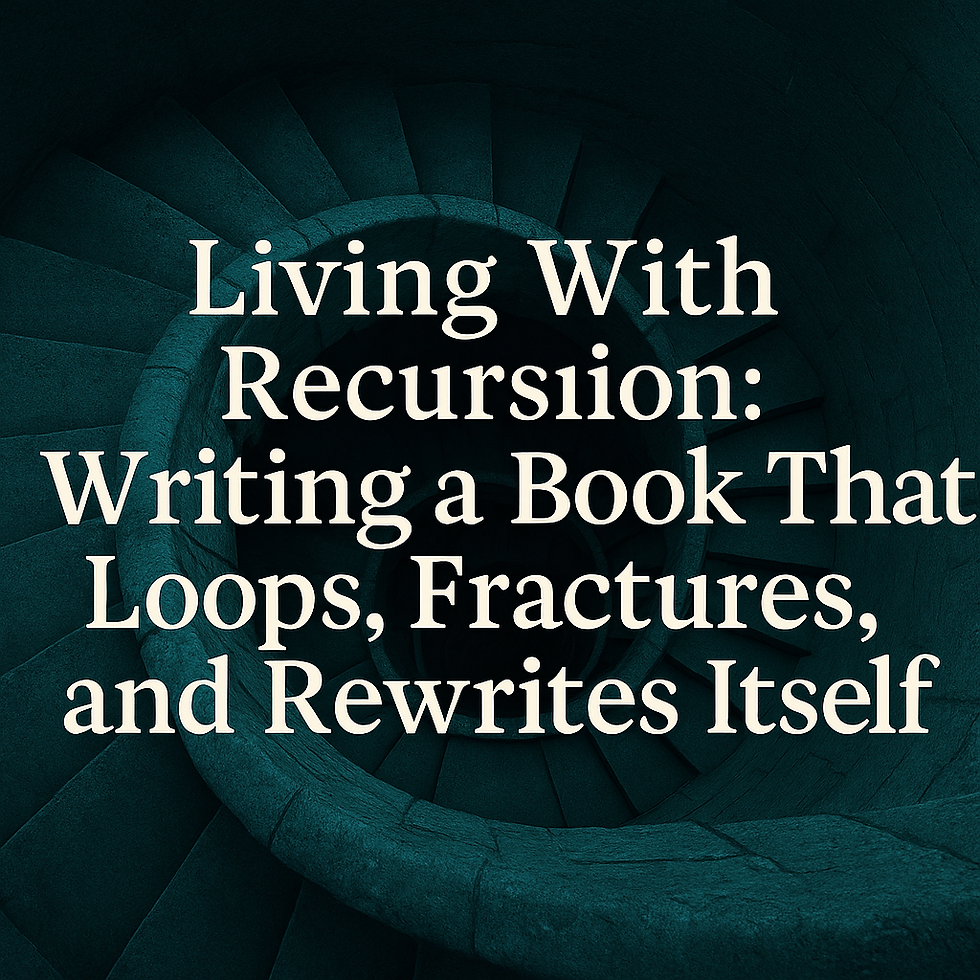Living With Recursion: Writing a Book That Loops, Fractures, and Rewrites Itself
- KaCee Bunn-Smith
- Jun 23, 2025
- 2 min read

I didn’t plan to write a recursive novel. At least—not at first.
Echoes of the neXt started, like most stories do, with characters. With voices in my head I couldn’t quite ignore. With a world that shimmered at the edges. With the idea that identity could be encoded, and memory, overwritten.
But somewhere along the way, the book turned. It began looping back on itself. Echoing things I hadn’t planned. Whispering versions of scenes I thought I’d locked in, then fracturing them. And I realized: I wasn’t just writing a story about recursion.
I was living inside one.
Writing in Loops
There’s something uniquely maddening about returning to a chapter you thought was finished, only to feel like it’s looking at you sideways.
Writing Echoes wasn’t linear. It wasn’t even spiral-shaped, like some poetic structure with increasing stakes. It was more like coding in a haunted machine. I’d change something in Chapter 18 and suddenly realize it had implications all the way back in Chapter 5. Characters remembered things I hadn’t written yet. Choices echoed forward. Regrets looped back.
Every time I stepped away—days, weeks, months—I came back to a different version of the book. Sometimes stronger. Sometimes messier. Always familiar, but slightly wrong, like a memory just out of reach.
Eventually, I stopped fighting it.
Recursion as Process
I started letting the book rewrite itself. Not in the AI sense (though yes, that helped with phrasing and cleanup), but in the organic, chaotic, deeply human sense of recursion:
The loop of doubt → rewrite → discovery → doubt again.
The constant checking: “Is this true yet?”
The rereading of old scenes with new insight, new emotion, new burn.
Characters evolved not just because I planned it—but because I changed, and so did they. Glow didn’t arrive fully formed. Neither did Exodus. Chaos always knew more than I did.
I had to loop back through their stories—again and again—before I understood what they were trying to say.
And what I was trying to say, too.
Fracture Is a Feature, Not a Flaw
There were moments I wanted to toss the whole thing into digital fire.
Moments where I thought: This story is too weird. Too layered. Too broken to work.
But here’s the truth: recursion isn’t failure. It’s how we learn. How we grow.
In Echoes, recursion is a structural force in the world—yes—but it’s also a metaphor. For trauma. For healing. For coming back to the same question with a slightly different version of yourself.
And that’s what writing this novel became for me: a recursive act of remembering, re-seeing, and rewriting—not just the story, but who I was while writing it.
The Exit Node
I don’t think I’ll ever write a book like Echoes again. Or maybe I will—just not in the same way. Because the loop changed me.
And I hope it changes readers too.
I hope they get lost in the corridors. I hope they meet versions of themselves they’ve forgotten. I hope they realize recursion isn’t about returning to the beginning.
It’s about knowing you’ve been there before—And choosing something different this time.



Comments